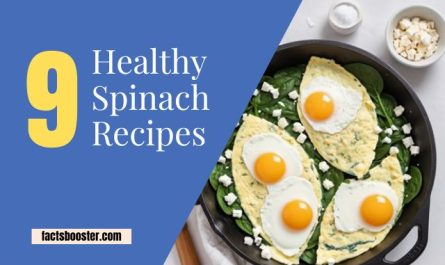Today, I’ll talk about nutritional tips for healthy aging foods and what foods to add to your diet. As we get older, our bodies slowly change, and the food we eat has a bigger impact on our health and looks. Our skin might not be as good, and we might get sick more easily. Even though we can’t stop aging, eating healthy can help us slow it down and look younger. If you want to stay healthy as you grow older, start learning with me now!

Foods for Staying Healthy as You Age
To stay in the best health, we should eat more of these foods:
- Healthy fats
- Good proteins
- Foods rich in antioxidants
- High-fiber foods
Healthy Fats
Healthy fats can slow down skin aging and help reduce inflammation. You can get good fats from these foods:
Extra Virgin Olive Oil
This is one of the healthiest cooking oils. It can lower the risk of many chronic diseases, including type 2 diabetes, metabolic disorders, and heart disease. How does it slow skin aging? It has strong anti-inflammatory properties that reduce inflammation and oxidative damage to the body. Using olive oil is simple—just drizzle it over your food!
Fatty Fish
Fatty fish has Omega-3, which helps stop heart disease and swelling. It also has antioxidants like astaxanthin that protect your skin from damage by swelling and the sun.
People who eat more fatty fish often have softer and more hydrated skin. This is because fatty fish has protein, which helps make collagen and keeps the skin stretchy.
Flaxseeds
Flaxseeds have lignans, a type of antioxidant that helps lower the chance of breast cancer and heart disease. They also have Omega-3, which makes your skin soft and full.
Avocados
Next, we have avocados, a food that almost everyone knows. They are full of healthy fats, fiber, vitamins, and minerals, making them a great food choice. The healthy fats in avocados help keep your skin healthy. They also have antioxidants that protect your skin from damage and aging.
Good Protein
Protein helps boost our immune system and reduces the risk of diseases. Many people try to lose weight for health, but they forget to eat enough protein, which can make the body weaker. How much protein do we need? We need 0.8 grams of protein per kilogram of body weight. So, if you weigh 60 kg, you should eat at least 48 grams of protein. (1)
Eggs
Eggs are one of the easiest sources of protein, and they have many nutrients like fats, vitamins, minerals, and antioxidants. Most people don’t know that the yolk has more nutrients than the egg white. So, when eating eggs, make sure to eat the whole egg, not just the white!
Chicken Breast
Chicken breast has more protein than other parts of the chicken. It also provides vitamins like Vitamin B, and minerals such as zinc and selenium. However, when cooking, be sure to add some healthy fats, or you may face other health issues due to a lack of fat.
Yogurt
Yogurt is high in protein and also contains calcium, selenium, zinc, Vitamin A, and Vitamin B12. Eating some every day can help slow aging. When choosing yogurt, Greek yogurt is a great option because it has simple ingredients and no added sugar.
Almonds
For nuts, almonds are a good choice. They have protein, Vitamin E, magnesium, manganese, and fiber. Many studies show that almonds can help reduce heart disease, high blood pressure, and bad cholesterol. Just a small handful each day is enough—don’t eat too many, as they are high in calories.
Lentils
Lentils are another great plant-based source of protein. They are rich in protein, folate, magnesium, potassium, copper, iron, manganese, and fiber. Lentils can be used in many dishes, especially curry, where they taste delicious!
Antioxidants
Eating antioxidants helps remove free radicals from our body. Free radicals are substances that can damage our cells and make us more likely to get serious diseases. Some chronic diseases that free radicals can harm include Alzheimer’s, Parkinson’s, stroke, neurodegenerative diseases, and cancer. (2)
According to the USDA, here are some foods rich in antioxidants:
- Red beans
- Wild blueberries
- Kidney beans
- Pinto beans
- Cultivated blueberries
- Cranberries
- Artichokes
- Blackberries
- Prunes
- Raspberries
- Strawberries
- Red Fuji apples
- Green apples
- Pecans
- Sweet cherries
- Black plums
- Russet potatoes
- Black beans
- Plums
- Gala apples
- Dark leafy greens
Dietary Fiber
Studies show that eating enough fiber every day helps keep your brain and heart healthy (3). Fiber is not a nutrient because it is not broken down or absorbed by the body. Its benefits include:
• Lowering cholesterol
• Controlling weight
• Reducing inflammation
• Lowering the risk of some cancers
When we can reduce these problems and lose weight, we will be healthier and look younger than others of the same age, right?
So, where can we get fiber from?
- Lentils
- Black beans
- Chia seeds
- Oats
- Broccoli
- Millet
- Apples
- Edamame
- Kale
- Spinach
Conclusion
The food we eat has a big impact on our health. As we get older, many parts of our body start to weaken, and our skin looks older. If we don’t take care of our diet, even cosmetic treatments might not help much. It’s important to start improving our eating habits early. Don’t wait until you’re 60 to change your diet because once your face is full of wrinkles, it’s hard to go back.


